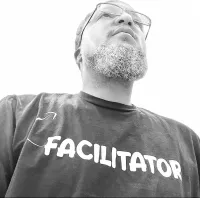

Your Success, Our Priority
Browse our articles below
Make sure to request our FREE Role Player Guide to Recruiting
Click the more stories button for additional articles

The Let Them Theory in Athletic Recruiting: Pros and Cons Explained
The Let Them Theory in Athletic Recruiting: Pros and Cons Explained
Let's just say that the book, "The Let Them Theory," was a pretty good read. It was good enough for me to see how it matches up with student-athletes in the recruiting process
Pressure builds quickly when a student-athlete dreams of playing in college. Every phone call, email, and text from a coach can feel like a turning point. It’s easy for parents, coaches, and everyone else to want to jump in and control the process. The Let Them Theory puts the decision-making in athletes’ hands, arguing that self-direction empowers student-athletes and shapes stronger competitors. What happens when we let them take the lead in recruiting?
Athletes who embrace the Let Them Theory experience more autonomy, face less pressure, and often find a more authentic path to their future. Still, there’s a flipside—sometimes a lack of guidance can lead to missed opportunities, costly mistakes, or stress from going it alone. Weighing the pros and cons reveals that this approach can’t promise a perfect outcome. Instead, it opens the door for growth and lessons, for both the athlete and their family.
How the Let Them Theory Fits Athletic Recruiting
The Let Them Theory stands out as a philosophy that hands the recruiting process back to the athlete. Rather than parents or coaches making key decisions, athletes are trusted to communicate with recruiters, weigh scholarship offers, and set their own goals. This shift encourages a new level of personal responsibility.
Every recruiting journey has critical moments that shape the athlete’s next steps. If you allow student-athletes to direct their path, they learn how to handle those turning points, building confidence and independence in the process. When athletes get to decide how much to engage, which programs to explore, and how to respond to setbacks, the experience feels more personal and rewarding.
Of course, trusting athletes with the reins doesn’t mean parents and coaches disappear. The Let Them Theory encourages support, but from a distance. The coach might provide advice, but doesn’t push the athlete into calls or meetings. Parents may offer emotional backup, but step away from negotiations or emails. This model puts the focus on the athlete’s voice and goals.
Pros of Embracing the Let Them Theory
Giving athletes more control over their recruiting journey has clear benefits. By allowing students to respond directly to coaches, consider offers at their own pace, and make final decisions, the Let Them Theory nurtures autonomy. Athletes who lead their process tend to develop better self-confidence and resilience, two qualities that serve them long after the recruiting cycle ends.
A major benefit is a noticeable drop in external pressure. When parents and coaches hold back from micromanaging, stress and anxiety lose their grip on the process. This hands-off approach also encourages students to make authentic choices. Athletes are more likely to commit to programs that align with their interests rather than pick a school based solely on outside opinions.
Other rewards come to light, too. Athletes who embrace the Let Them Theory build stronger communication skills by talking directly with recruiters. Accountability grows, as any missed opportunity or setback becomes a moment to learn and adjust. Family dynamics often improve, too, since parents no longer face burnout from constant involvement. When athletes are trusted with big decisions, the recruiting process better mirrors the independence required for the college years ahead.
Reducing Pressure and Building Autonomy
The recruiting process can be intense for athletes. Calls, emails, and visits stack up, turning a high school experience into a high-stakes race. The Let Them Theory challenges this by shifting the focus away from adult-driven checklists and toward athlete-driven action. Trusting student-athletes to manage their own schedule and priorities removes layers of pressure.
A less pressured route allows athletes to explore a broader range of programs without fear of letting anyone down. Instead of feeling boxed in by adult expectations, athletes have room to discover where they genuinely belong. That breathing room often leads to a better fit with a program, lower stress, and more energy for actual competition.
As athletes handle more of the process themselves, they become more organized, resourceful, and proactive. These life skills are transferable well beyond sports, making each interaction with recruiters or coaches an early lesson in adult responsibility. The result is a young person better prepared for the independence required at the collegiate level.
The Risk of Missed Opportunity and Mistakes
Trusting athletes to lead their recruiting process does not come without potential downsides. Inexperience can lead to critical mistakes, especially if athletes do not recognize the importance of deadlines, eligibility requirements, or communication etiquette. A missed opportunity, a call that goes unanswered or a camp that is skipped, may mean closing the door on a coveted program.
The risk of making the wrong decision grows when guidance is limited. Athletes new to the process may commit to a program too soon or hesitate until the best offer is gone. Without a more seasoned perspective, they might fail to negotiate the best terms or misunderstand program expectations entirely.
While autonomy brings rewards, it can also place a heavy burden on young shoulders. Athletes may regret not seeking advice on big decisions and wish for more input after the fact. That’s why even within the Let Them Theory, a support system that checks in occasionally is vital for preventing avoidable mistakes.
The Emotional Toll of Going It Alone
Athletes face rejection and setbacks throughout the recruiting cycle. Without a strong support system, these disappointments can impact self-esteem and motivation. Managing stress alone can feel isolating, especially when most peers rely on adults for major decisions.
Having no safety net in high-pressure moments means that some athletes internalize their struggles, leading to anxiety or frustration. The Let Them Theory, when taken to an extreme, can leave athletes feeling like they have to handle everything on their own.
Balancing independence with periodic support balances risk and growth. Space to fail safely, paired with occasional guidance, helps student-athletes recover from setbacks and maintain motivation throughout long recruiting seasons.
Pros for Families When Parents Step Back
Families benefit in their own way when the Let Them Theory takes hold. Reduced involvement means parents aren’t on constant alert, fielding calls and managing schedules. This shift lowers family tension and gives parents a chance to appreciate their athlete’s growth from a supportive distance.
Without constant pressure to steer every conversation or negotiate every detail, parents find more time for quality moments outside the athletic focus. This separation lets family relationships thrive, free from the stress of navigating the recruiting maze together.
Family support remains important, but it naturally transforms into encouragement rather than control. This adjustment gives athletes room to learn, while parents watch their strengths develop from the sidelines.
Authentic Choices and Stronger Program Fit
Athletes who guide their recruiting process tend to identify programs that feel right on a personal level. When freed from adult influence, student-athletes zero in on schools that match their playing style, academic interests, and long-term goals.
This authenticity leads to better retention and satisfaction once the athlete arrives on campus. Programs and athletes both benefit when mutual fit replaces forced commitments. Coaches gain players motivated by genuine interest, while athletes build connections with teammates and staff who align with their core values.
The search for a natural fit, championed by the Let Them Theory, can set the stage for years of athletic and academic success.
Where Athletes Need Support Most
While independence fuels growth, every athlete faces moments where expert guidance is crucial. The Let Them Theory does not mean abandoning support. Instead, it emphasizes targeted check-ins at big decision points, like official visits, signing periods, and negotiations.
Athletes benefit from mentorship when deciphering complex scholarship offers, reviewing eligibility requirements, or identifying program red flags. A trusted adult can help interpret signals from coaches or flag situations that do not align with the athlete’s goals.
The most effective support comes from parents and coaches who know when to step back and when to lean in, ensuring athletes don’t miss out on key opportunities or critical information.
Tips for Balancing Let Them Principles
Create a regular schedule for checking in with your athlete, rather than constant monitoring.
Encourage open communication so athletes feel comfortable asking for advice.
Share resources, such as eligibility checklists or scholarship guides, then let athletes take the lead.
Remind athletes that missing out on one opportunity often means another option may suit them better.
Celebrate moments of growth, whether the outcome is a success or a learning experience.
Letting Growth Drive the Process
The Let Them Theory asks us to trust athletes with tough choices and to accept the real possibility of both missed opportunities and surprising wins. When student-athletes are empowered to make decisions, they discover who they are, both on and off the field. The journey is filled with ups, downs, and lessons that only come by stepping back and letting growth take the wheel. In the end, the recruiting process is less about perfection and more about preparing athletes to face a future where they’re in charge of both their dreams and their direction.
Resources & Community
🎯
Follow Facilitate The Process on Facebook
https://www.facebook.com/facilitatetheprocess/
🌐
Join Our Recruiting Community
🔗
Get Started Today

